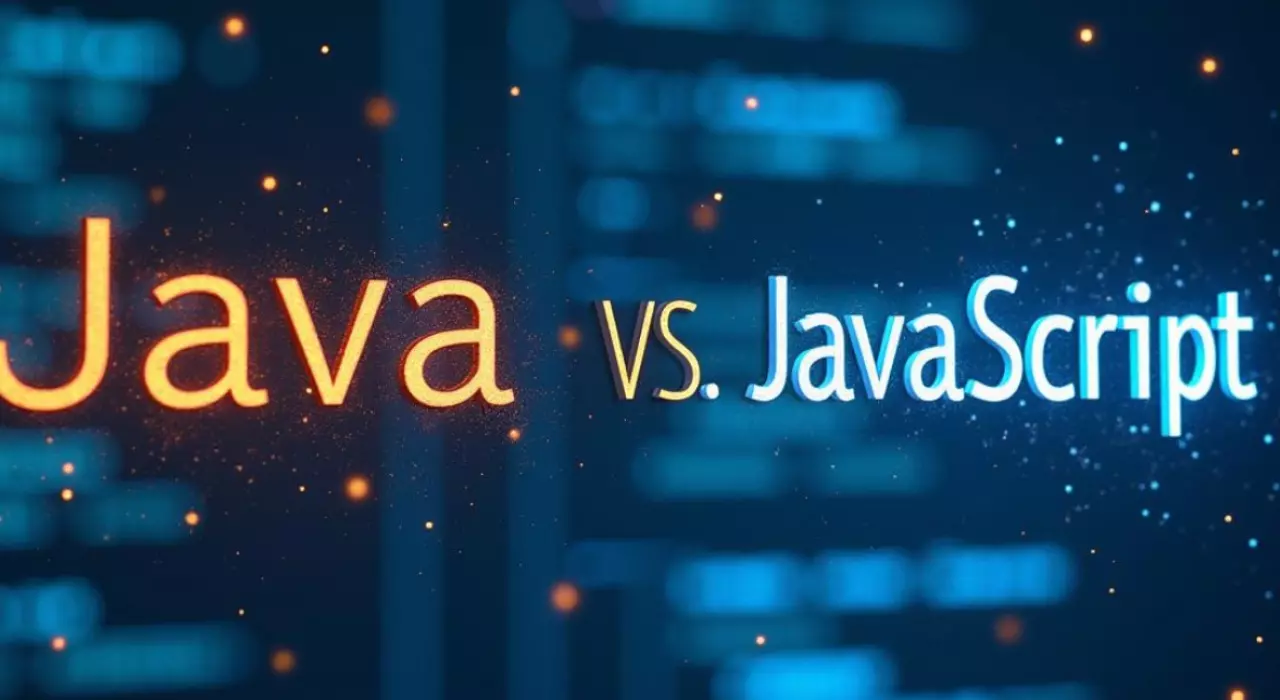The difference between Java and JavaScript is a question often asked by beginner developers and companies seeking to choose the right programmation language for their projects. Although their names are similar, these two technologies have very different uses, architectures and performance, and sometimes complement each other.
In this article, we'll look at the main differences between Java and JavaScript, their technical specificities, their advantages and when to use them.
What is Java?
Java is an object-oriented programming language created in 1995 by Sun Microsystems (now Oracle). It is designed to be versatile and powerful, capable of running on any device via a virtual machine (JVM).
How Java works :
- The developer writes code in Java.
- The code is transformed into a special file called bytecode.
- This file is executed by the JVM (Java Virtual Machine), which translates it into instructions that can be understood by the computer.
What is JavaScript?
JavaScript is an interpreted scripting language used primarily to make web pages dynamic and interactive. Unlike Java, it runs directly in the browser.
How JavaScript works :
- A web user opens a web page containing JavaScript.
- The browser (Chrome, Firefox, Edge...) reads and executes the code directly.
- The site becomes interactive: animations, intelligent forms, updates without reloading the page...
What's the difference between Java and JavaScript?
Execution mode: Interpreted vs. compiled
- Java is compiled: the code must be translated before being executed, making it faster and more efficient for complex tasks.
- JavaScript is interpreted: it executes immediately without compilation, which is ideal for rapid development.
Client-side vs. server-side
- Java is mainly used on the server side (back-end), to manage databases, user connections and so on.
- JavaScript is mainly used on the client side (front-end), to enhance the user experience.
But today, JavaScript can also be used on the server side, thanks to Node.js.
Security and performance
- Java offers greater security and robustness, perfect for large enterprises and complex systems.
- JavaScript is faster to deploy, but requires additional safeguards to prevent security breaches.
Java vs JavaScript : Which language should you choose for your project?
You should choose Java if you want :
- An Android mobile application (mandatory for Android).
- Robust, secure software for a large enterprise.
- A platform requiring complex calculations and speed.
- A stable, scalable back-end for a major web application.
💡 Examples of Java projects :
- An online bank with a secure transaction system.
- A mobile inventory management application.
- Human resources management software.
You should choose JavaScript if you want to :
- Create a modern, interactive website.
- Develop a web application accessible from all browsers.
- Create a light, fast back-end with NodeJS.
- Do full-stack development by combining front-end with VanillaJS or one of the JS frameworks and back-end.
💡 Examples of JavaScript projects:
- An interactive e-commerce site with a dynamic shopping cart.
- A web application to display animations and interactive maps.
- A dynamic website, update social media feeds.
- A web application like Trello or Google Docs.
- A real-time instant messaging platform.
Why choose Esokia for your Java and JavaScript projects?
At Esokia, we specialize in Java and JavaScript development. No matter how complex your project, we have the experts you need.
🎯 Why work with us?
- Solid expertise in Java (Spring, Hibernate, Android) and JavaScript (React.js, Vue.js, Angular.js, Node.js).
- A tailor-made approach to develop solutions adapted to your business.
- A team of qualified engineers to ensure the security, performance and scalability of your applications.
- Full support, from development to maintenance, including SEO and UX optimization.
Contact us!

